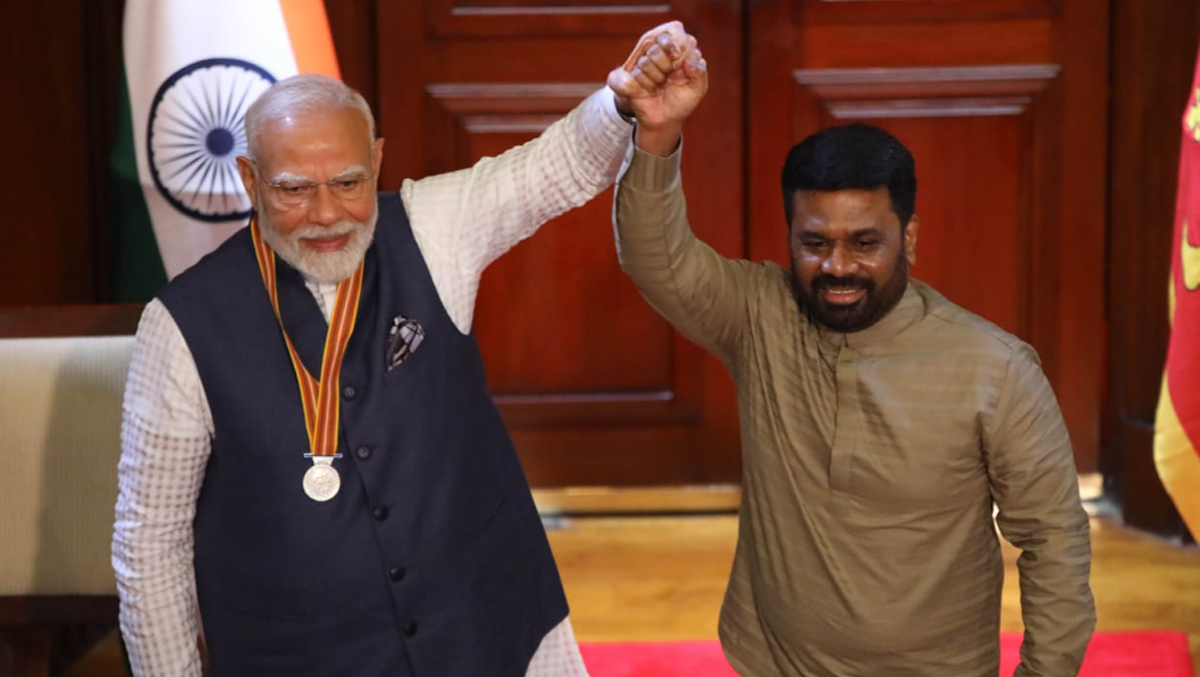Pity Wijeweera, the late leader of the Janatha Vimukthi Peramuna (JVP), whose life came to an end in 1989. The late Wijeweera feared our giant neighbour India. He claimed India had expansionist intentions and even wrote chapters on the subject in his own ‘little red book’.
Members of his organisation took these anti-Indian essays so seriously that during the 1988-1990 reign of terror, our countrymen and women, on the pain of death, were forced to refer to the name of the vegetable ‘Bombay Onion’ as ‘B’ Onion. The then JVP also viewed the estate Tamils as an Indian ‘fifth column’.
So blinded by petty nationalism was the JVP at that time, they were unable to even recognise that the upcountry Tamils were, in fact, the only community in our country who could correctly be identified by the Marxian term ‘proletariat’. Instead, the JVP looked at the community as an internal enemy and as mentioned earlier, a fifth column for India.
Fortunately, in the recent past, under a change in leadership, the JVP’s attitude towards the upcountry Tamil community changed dramatically. The party backed the struggles of the community for justice. So successful was the JVP in its overtures that during the general election of 2024, the JVP/NPP combine won five of the eight seats in the Nuwara Eliya district areas where upcountry Tamils form a majority.
Similarly, its anti-India stance underwent a radical change after the party received an official invitation to India in early 2024. Party leader Anura Kumara Dissanayake and a team of JVP leaders were warmly received and held discussions with important Indian ministers. During discussions, they emphasised that a future JVP government would never permit Sri Lankan soil to be used to endanger India’s security.
After taking over the presidency, President Dissanayake paid his first visit as head of state to India. He was accorded a guard of honour by the very Indian forces his party once rose up in arms against.
So it is unsurprising that during Premier Modi’s visit to Lanka a few days ago, Lanka and India initialled an important defence and co-operation pact.
As the idiom goes, ‘the wheel has turned full circle’. The last time an MoU on defence and understanding between our two countries was signed was thirty-eight years ago. Then Indian premier Rajiv Gandhi literally forced the Indo-Sri Lanka Defence Pact down President Jayawardene’s throat.
Today, the boot is on the other foot, Lanka needs India’s help, especially regarding meeting its international debt repayments. Our chief concern is the state of the economy. US President Trump’s imposition of a huge tariffs on Lankan exports to the US will almost make it impossible to achieve targets within the framework of the IMF Extended Fund Facility (EFF) and the stipulated timeframe.
Lanka therefore needs to seek fresh markets and investments to offset the anticipated drop in income from the US market. However, India is still the third largest importer of our goods as well as our third biggest lender. It offers us a way out in the midst of lower exports to the US.
We already have a Free Trade Agreement (FTA) with India, which has been extremely beneficial to us. The terms of trade are favourable to our country. Sixty-five percent of our exports benefit under the agreement, while only 5% of Indian exports to us receive the concession. We need to upgrade this agreement.
Fortunately, the present government, despite earlier seeing dangers of Indian expansionism, has eaten humble pie and acknowledged the important role India played during our financial crisis. It has also agreed to advance the Sampur Power Project. Government is also in talks to upgrade the Free Trade Agreement; all of which will help offset, to an extent, the US imposition of tariffs on our exports to that market.
India, in turn, has tried not to ruffle Lankan feathers by raising contentious issues. The actions of both sides indicate intentions of attempts to create better relations. India, after all, has not suggested that Lanka becomes India’s 29th state or 8th Union territory! It is time all Lankans realise our future lies in aligning with Asia and give up the slavish colonial mentality of the past.


